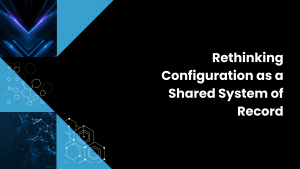I’ve always been of the mindset that turnover in personnel is generally a good thing, particularly at the top of the organization. Like all things, organizations need to adapt or they will die while time passes them by and the market chooses alternatives that better fit the times. This morning, Microsoft announced that Steve Ballmer, CEO since 2000, will retire within the next twelve months and that the Microsoft board has created a committee to identify his successor.
Over the years, I’ve had really mixed thoughts about Steve Ballmer as a leader. Quite frankly, I’ve never seen Ballmer as particularly visionary. But when it’s come to execution on a plan, he can get the job done. Microsoft has seemed very reactive in the past decade, but as I reflect on Ballmer’s tenure, it’s apparent that Microsoft has had their head in the game, but they weren’t always playing on the same field as others.
Obviously, for the time being, Apple and Google have won the mobility game in both phones and tablets. But, Microsoft was playing in these arenas long before Steve Jobs brought unto us… the iPhone! And, of course, Apple followed up with the iPad and both devices revolutionized the phone and tablet markets and have led the way in turning the PC world on its head.
In the early 2000’s, though, Microsoft was experimenting with the tablet space and a number of tablet editions of Windows were produced and bundled with hardware from vendors that created touch screen and stylus driven versions of products. In addition, who can forget Windows Mobile? While it may not have been a favorite mobile operating system, it was semi popular in the business space. But, on both counts, Microsoft simply couldn’t pull off the revamping of the user interface that was necessary for these products to succeed and the company left the door wide open for Apple to swoop in and get it right. Some of that had to do with Apple’s willingness to redefine the user experience around mobility. And, it’s tough to forget what happened when Microsoft eventually decided to embrace the interface success they had with Windows Phone, the successor to Windows Mobile. With that came the new Windows 8 interface, a tool designed for everyone that ended up fitting exactly no one. I believe that Apple’s willingness to differentiate where it makes sense is one of the key reasons that the company has remained successful in selling both OS X and iOS.
Even today, Microsoft is still struggling in these spaces as evidenced by Surface sales figures and the lack of great apps for the Window Phone platform.
Shareholders react
Apparently, Microsoft’s shareholders agree that the time is right for a new CEO. After making the announcement regarding Ballmer’s exit, Microsoft stock surged 9%. To be fair, there have been a lot of successes under Ballmer’s tenure, including Windows 7, the company’s move to create cloud-based products, and ancillary items such as Xbox. In addition, revenue has grown massively as the company has shipped Xbox and created the cloud service products, so Ballmer can’t be pointed out as a failure.
However, that said, there been some spectacular failures in the recent decade as well, including:
- Windows 8. Despite testers and analysts all but begging the company to change course, Microsoft forged ahead and the results has been dismal.
- Windows Phone. Actually, I believe that the Windows Phone platform itself is superior to Android with one key exception: the app catalog. Unfortunately, a lack of apps is keeping manufacturers from adopting Windows Phone as a part of their lineup.
- Vista. Like Windows 8, Vista did not see any kind of market success and was quickly replaced by Windows 7.
- Surface. A combination of people hating Windows 8 and a lack of apps have largely doomed the Surface line of tablets and resulted in Microsoft taking a massive write down this quarter and slashing the price of the product in order to move remaining inventory.
Ballmer’s note to Microsoft employees indicates that the company “Need[s] a CEO who will be here longer term for this new direction” that the company outlined earlier this year. That said, I would not be surprised if there was pressure from the board and others for Ballmer to step down, particularly in light of recent company failures. I agree that the company needs a new CEO at the onset of the new One Microsoft strategy rather than waiting until it’s been largely executed. If the new “One Microsoft” route is to have any chance of success, the new CEO must be able to make it his own and reshape the strategy to meet emerging needs as he or she seems them.


